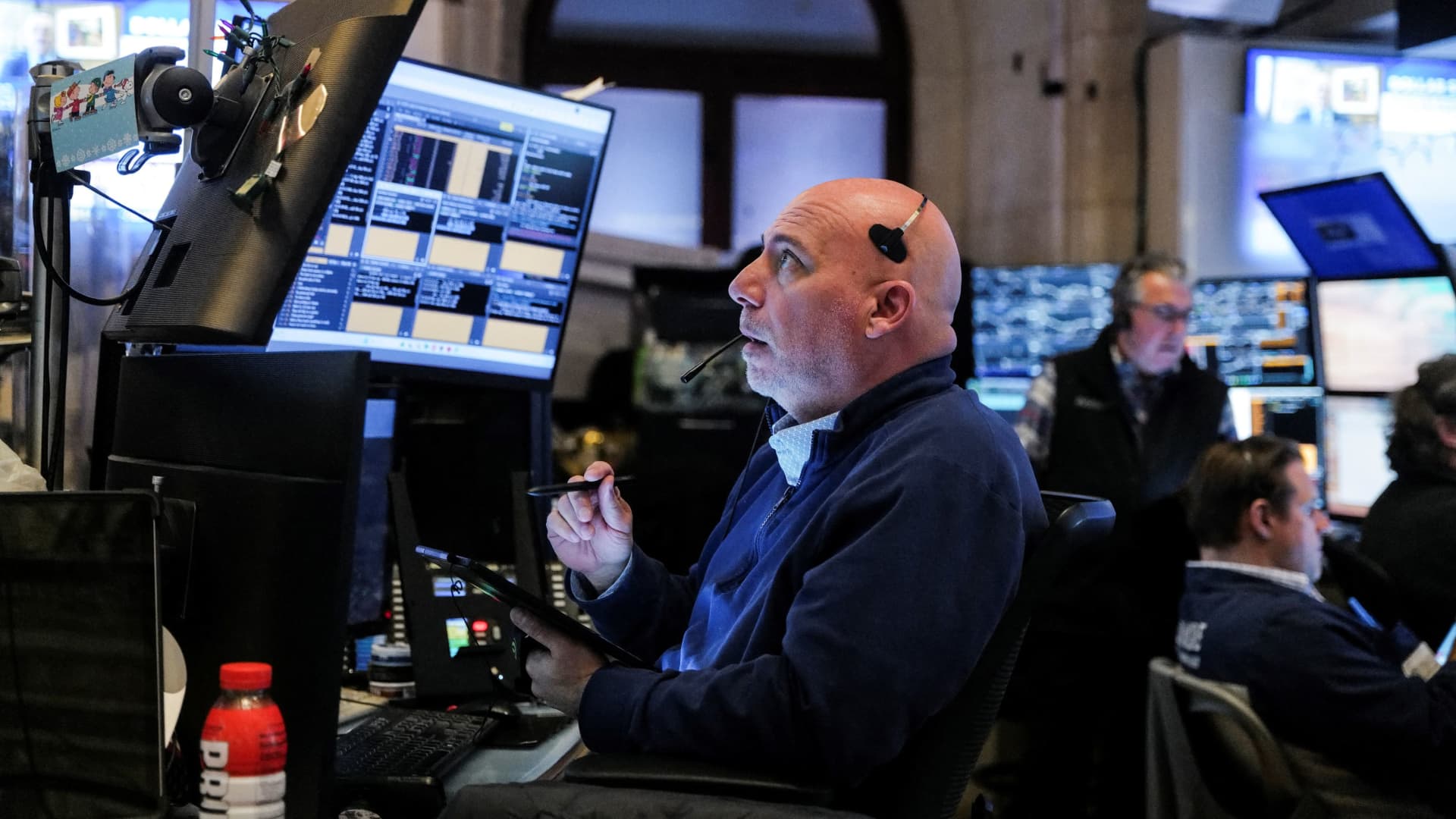Employees work on a production line of caps that will be exported to the United States at a factory in Suqian, in eastern China’s Jiangsu province on April 7.STR/Getty Images
Countries around the world scrambled to contain the fallout of U.S. tariffs on Monday as Donald Trump threatened higher levies on China and leaders from Europe and Israel sought deals that would buy them relief from the U.S. President’s trade war.
Mr. Trump threatened additional 50-per-cent tariffs on China, which would bring the country’s rate to 104 per cent, saying it had until noon on Tuesday to withdraw the 34-per-cent tariffs it had imposed on U.S. products. Beijing had imposed that levy in response to the new U.S. tariffs of 34 per cent.
“I have a great relationship with President Xi. I hope it’s going to stay that way,” Mr. Trump told reporters on Monday. “I have great respect for China but they can’t do this. We’re just going to have one shot at this and no other president’s going to do this, what I’m doing, and I’ll tell you what, it’s an honour to do it because we have been just destroyed by what they’ve done to our system, you know, we have $36-trillion of debt for a reason.”
In a statement Tuesday, China’s Ministry of Commerce said it “firmly opposes” Mr. Trump’s 50-per-cent tariff threat and said Beijing would “resolutely take countermeasures” if Washington followed through on it. ”The United States’ threat to escalate tariffs on China is a mistake on top of a mistake,” the statement added, calling Mr. Trump’s measures “blackmail” and promising “China will fight to the end.”
The European Commission said that it had proposed a “zero-for-zero” tariff deal to the U.S. administration to avoid a trade war. However, by Monday evening, after Mr. Trump had said the offer wasn’t enough, the commission proposed its first retaliatory tariffs at 25 per cent on some U.S. imports.
Last week, Mr. Trump announced sweeping new tariffs on trading partners, with a baseline tariff of 10 per cent on imports and significantly higher levies for specific countries. The baseline tariffs went into effect on April 5, and the reciprocal tariffs go into effect on April 9.
Stocks around the world took a massive hit after the sweeping tariff hikes to nearly every country. But on Monday, another day of violent market swings, with investors having warned that the tariffs could lead to a recession, Mr. Trump told reporters that his administration is not considering pausing the levies and took aim at China and the EU. At the same time, he indicated that he is open to negotiating deals with world leaders.
Mr. Trump addressed reporters alongside Israeli Prime Minister Benjamin Netanyahu at the Oval Office. Mr. Netanyahu, who was the first foreign leader to visit Mr. Trump after he took office, became the first leader to meet with him to discuss tariffs in person since they were announced last week. The Trump administration imposed 17-per-cent tariffs on Israel despite Israel having eliminated tariffs on American goods.
The two men were meant to hold a formal news conference, but it was cancelled. Still, Mr. Trump spent nearly an hour answering questions on issues ranging from the fallout from his tariffs to Israel’s war on Hamas in Gaza, and a coming meeting the U.S. has with high-level Iranian officials.
Mr. Trump said that virtually every country wants to negotiate and if he hadn’t taken the actions he has – by imposing tariffs – over the past couple of weeks, nobody would be at the table.
“Now they’re coming to us,” he said. “Now they’re offering things to us that we would have never even thought of asking them for because they’re experiencing a lot of hurt.”
Mr. Trump pointed out that Mr. Netanyahu started their conversation by saying he would eliminate all tariffs.
Mr. Netanyahu said that Israel will eliminate the trade deficit with the United States and eliminate trade barriers. He said he believed Israel could “serve as a model for many countries who ought to do the same.”
When Mr. Trump was asked whether he planned to reduce the tariffs his administration put on Israeli goods, he said, “Well, we’re talking about a whole new trade. Maybe not,” and added, “Don’t forget we help Israel a lot, you know, we give Israel $4-billion a year. That’s a lot. Congratulations, by the way.”
When he was asked about the EU’s offer of a “zero-for-zero” tariff agreement, Mr. Trump said it’s not enough.
“The EU has been very tough over the years. It was, I always say it was formed to really do damage to the United States in trade. That’s the reason it was formed.”
Mr. Trump went on to say that most countries in Europe came together to form “a monopoly situation to create a unified force against the United States for trade.”
He said NATO, which is made up of many of the same countries, took advantage of the U.S. financially and militarily, until he became President and urged the countries to contribute more to defence spending.
“We were paying for NATO, so we’re paying them to guard them militarily and they’re screwing us on trade. So that’s not a good combination.”
Mr. Trump acknowledged the EU’s response to his tariffs but said he’s frustrated by the rules and regulations there.
“It’s not only tariffs, it’s non-monetary tariffs. It’s tariffs where they put things on that make it impossible for you to sell a car,” he said. “They come up with rules and regulations that are just designed for one reason: that you can’t sell your product in those countries and we’re not going to let that happen.”
With a report from Reuters


